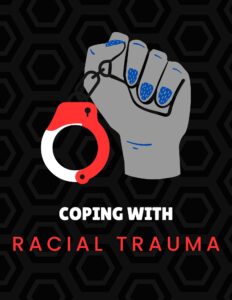
Many African American college students have stories about their experiences with racism and how it shaped their perception on life in today’s society. The American Psychological Association, defines this as racial trauma.
According to a scholarly article, “White People Stress Me Out All The Time: Black Students Define Racial Trauma,” Black college students said racial trauma produces long-lasting stress and their experiences of racism affects how they think and feel about their everyday life.
Kyla Hubbard, the editor-in-chief of The Famuan, said she frequently received ignorant comments at her predominately white high school and she coped with those experiences by enrolling at Florida A&M University.
“At one point I had a classmate that asked why we, Black people, run from the police,” Hubbard said. “After explaining to him that I didn’t know why he was making false generalizations, he still went on to make insensitive comments during a time where police brutality was at the forefront of conversations.”
“Coming to FAMU was the easiest way I could cope with the racism I experienced in my early life,” Hubbard added. “I figured that attending an HBCU would allow me to connect with my culture before going into society.”
Racism could also be felt in the workplace. Joidyn Clark, a third-year nursing student at FAMU, said she felt discriminated against by an old employer at Panera Bread.
“She refused training for promotion and didn’t want to cooperate with school schedules and family condolences,” Clark said. “Opposed to the white college students at the University of South Florida that worked there, she always catered to their needs.”
The 21-year-old student said she carries that experience into her work environment today because it made her more aware of the skeptical treatment towards minorities in the workplace.
“I definitely started reading my employee handbook more,” Clark said. “I felt like if my current employer ever showed me unfair treatment moving forward, I could ‘read my rights’ based off of the handbook and tell her what I wasn’t comfortable with doing.”
Individuals may encounter racial trauma by viewing hate crime videos on the internet. Hubbard said she chooses not to watch videos of racial injustices because they make her sick to her stomach.
“The blatant disregard for Black life is genuinely scary,” Hubbard said. “Those videos are far too common to engage in often and I’d rather preserve some of my peace by not witnessing racial hate.”
Even though it is not considered an actual mental health disorder, racial trauma is real and Black college students are experiencing it.